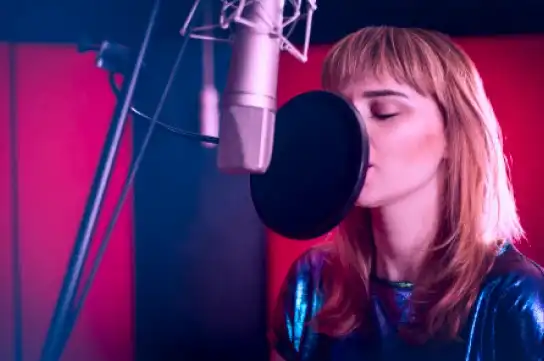Why NFTs are poised to take the music industry by storm
2021 saw the rise of a new term, which has taken several industries, including music, by storm: NFTs. Interest and demand in NFTs have overflowed from the crypto world, with NFT sales reaching $17.7 billion in 2021, an increase of more than 200 from $82.5 million in 2020, according to a report from Axios.
With music NFTs sales skyrocketing among recording artists ranging from Grimes, Jay-Z and the Weeknd and even hip hop royalty Snoop Dogg aiming to set up the “world’s first NFT record label,” it’s clear that NFTs are going to impact the music industry in a big way.
But what are NFTs exactly, how are artists using them, and what are their potential downfalls? In this blog, we delve into the world of blockchain, music and NFTs.
With music NFTs sales skyrocketing among recording artists ranging from Grimes, Jay-Z and the Weeknd and even hip hop royalty Snoop Dogg aiming to set up the “world’s first NFT record label,” it’s clear that NFTs are going to impact the music industry in a big way.
But what are NFTs exactly, how are artists using them, and what are their potential downfalls? In this blog, we delve into the world of blockchain, music and NFTs.

What are Music NFTs?
Simply put, NFT is short for “Non-Fungible Token”. This token can represent anything that is unique, from digital art to graphic illustrations, songs and pictures. But there’s a catch – this token does not physically exist in the real world. An NFT gives the holder ownership of a digital asset that is stored on the most secure ledger currently in existence: a blockchain. Providing ownership certification, blockchain makes it easy to verify authenticity, trace the origins of the NFT and pay the creators on the open global market. Music NFTs are tokenized audio files, but they can also contain additional assets such as images, VIP tickets and backstage passes. NFTs are seen as rare digital collectibles, some music NFTs even offer the owners more specific options, such as NAS’ single NFT “Ultra Black” which grants owners a share of the royalties. But generally, music NFTs do not offer the holder ownership rights to the track unless specified.

How are NFTs impacting the music industry?
Music artists are using NFTs in two ways – either as a promotional tool to create a closer, more direct connection with fans or as a tool for investment in their careers. Even though NFTs technically do not exist in the real world, they can be traded for, or linked to, objects such as vinyl records or concert tickets. For example, Kings of Leon released their latest album as an NFT in March 2021. The limited number of NFTs included the album and exclusive artwork and extra bonuses like VIP seats for future concerts. Another way some artists are using NFTs, is by selling their music directly to their fans. Music NFTs let’s artists earn money by engaging with their fans without relying on traditional music industry intermediaries, such as managers, record labels and publicists. This way fans can show their support for their favorite artists by investing in their career. This can be done by using music NFTs as a crowdfunding tool or through the sharing of royalty revenue. Musicians can include an option to make a royalty kickback on every NFT transaction. For example, if an artist creates an exclusive song limited to 100 NFTs and sells them each for $5, they can add the option to receive a 10% cut as the creator each time the NFT is traded. Now imagine five years later, these NFTs are being traded for $5000 – this means that $500 of every NFT traded will go to the artist.

Should we be concerned about NFTs?
Music NFTs are being used by artists in multiple ways and offer several benefits, as highlighted above. But bear in mind that this is an entirely new system of selling and trading creative tokens. At this point in time there are no legal regulations or rules regarding NFT ownership and transactions, so issues may arise when it comes to selling and purchasing them. As NFTs are a digital asset, there is always a chance that someone can create an illegal copy of the artist’s creation, thereby bringing down the value of the NFT. But the good news is a forgery is easy to spot because NFTs are generally running on blockchain technology, so there is complete transparency about who has created and owns the NFTs
In conclusion, NFTs offer musicians a new, exciting way to share their music and engage with fans in the grand scheme of things. If you want to learn more about NFTs and how to monetize them for your career, reach out and get in touch with SmartLabel today.
By Jonathan Oudekerk